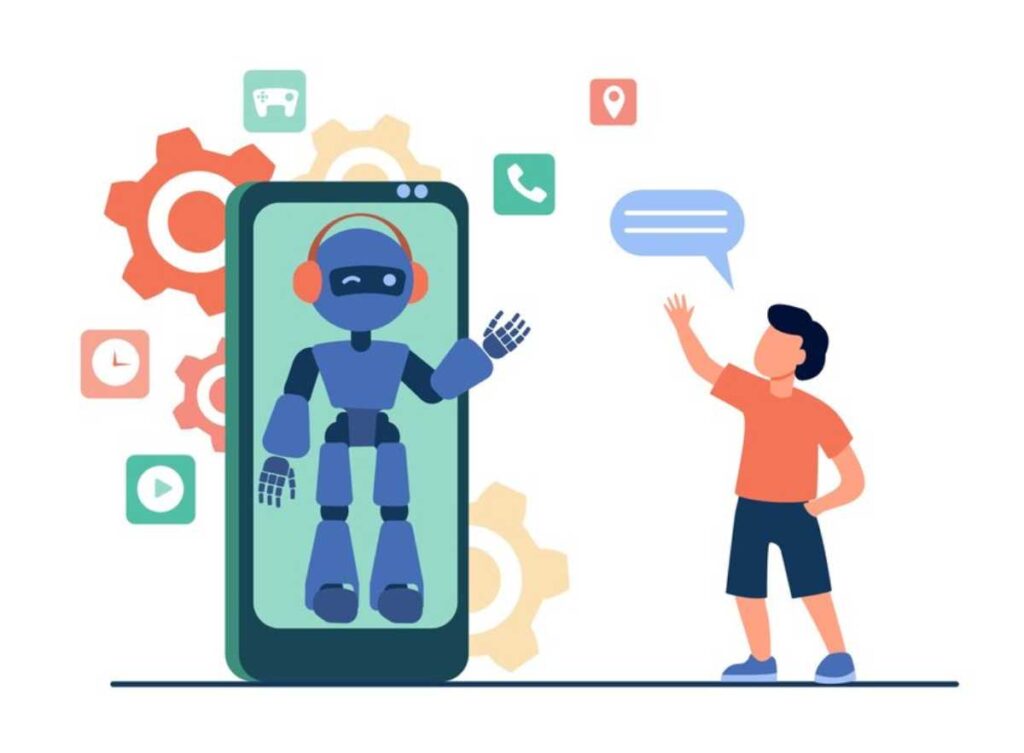Customer service is evolving rapidly. Businesses must always assist clients worldwide, and traditional help desks are struggling to keep up. AI-powered chatbots are filling this gap by offering faster and more efficient solutions. As a result, customer service is becoming more streamlined and accessible for users.
Changing the Face of Customer Interactions
AI chatbots have advanced beyond simple question-and-answer tools. With the help of natural language processing (NLP) and machine learning, chatbots can now understand customer feedback in real-time. This enables businesses to reduce response times, increase accuracy, and enhance customer satisfaction.
Key Advancements in AI Chatbots:
- Real-Time Responses – Chatbots can process inquiries instantly, eliminating long wait times.
- Better Understanding of User Queries – Chatbots can comprehend complex queries and provide relevant solutions with NLP.
- Personalized Customer Experience – AI chatbots can remember previous interactions and offer tailored responses based on user history.
For example, if a customer contacts an online retailer regarding a missing package, a chatbot can provide shipment details and suggest a compensation method, reducing frustration and improving customer experience.
Advantages of AI Chatbots for Businesses
24/7 Customer Support
- Customers expect service anytime, anywhere.
- AI chatbots ensure businesses are always available.
- Increased accessibility leads to higher customer satisfaction.
Cost Efficiency
- Chatbots handle routine queries, reducing the workload for human agents.
- Businesses save costs on staffing and training customer service representatives.
- Faster problem resolution minimizes operational costs.
Enhanced Scalability
- Human support teams struggle with high demand during peak times.
- Chatbots maintain the same level of efficiency regardless of traffic volume.
- Businesses can expand without worrying about overwhelming customer support teams.
Industry Applications of AI Chatbots
Retail & eCommerce
- Product Recommendations – Chatbots suggest products based on browsing history and preferences.
- Order Tracking – Customers can instantly get updates on their shipments.
- Returns and Refunds – Chatbots assist in processing returns and refunds quickly.
Healthcare
- Appointment Booking – Patients can schedule and reschedule appointments effortlessly.
- Health Tips and Information – Chatbots provide information on symptoms, medications, and general wellness.
- Follow-Up Reminders – Patients receive reminders for medications or upcoming appointments.
Travel & Hospitality
- Booking Confirmations – Customers get instant booking details.
- Itinerary Updates – AI chatbots provide timely travel updates and reminders.
- Customer Assistance – Travelers can ask about destinations, accommodations, or flights.
Challenges in AI Chatbot Development
While AI chatbots offer several benefits, they also come with challenges.
Limitations of AI Chatbots:
- Lack of Human-Like Conversations – AI still struggles to replicate human emotions and empathy fully.
- Understanding Context – Some queries may require contextual understanding beyond the chatbot’s capabilities.
- Handling Complex Issues – Chatbots can manage common problems, but more complicated issues require human intervention.
Solutions to Overcome Challenges
Sentiment Analysis
- It helps chatbots detect user emotions.
- Allows AI to respond appropriately based on the customer’s mood.
- Reduces frustration by improving interaction quality.
Adaptive Learning
- Chatbots learn from past interactions.
- Improves accuracy and relevance of responses over time.
- Enhances chatbot intelligence to handle a broader range of queries.
Companies like NetGeist.ai are developing solutions to address these challenges by integrating AI advancements, making chatbots more efficient and human-like.
Future of AI Chatbots
AI chatbots will continue to evolve, enhancing customer service further. Here are some key trends to watch for:
- Better Conversations – Improved NLP will enable chatbots to hold more natural conversations.
- Integration with Voice Assistants – AI chatbots will work seamlessly with voice models like Alexa and Google Assistant.
- Advanced Context Awareness – Chatbots will understand user preferences and provide highly relevant responses.
Tips for Businesses Implementing AI Chatbots
Choosing the Right Chatbot Solution
- Ensure the chatbot integrates with existing systems.
- Look for AI capabilities like NLP and machine learning.
- Consider a solution that supports multilingual conversations.
Training the Chatbot
- Use fundamental customer interactions to improve chatbot responses.
- Regularly update the chatbot’s knowledge base.
- Test chatbot performance before deployment.
Providing a Human Support Option
- Ensure customers can connect to a live agent if needed.
- Use chatbots for routine inquiries and let human agents handle complex cases.
Conclusion
AI-powered chatbots transform customer service by improving response times, reducing costs, and enhancing scalability. As technology advances, chatbots will become even more capable, making customer interactions smoother and more efficient. Businesses looking for chatbot development solutions should seek reliable partners like NetGeist.ai, which offers tailored tools to meet diverse business needs.
By leveraging AI chatbots, companies can stay ahead in a competitive market while ensuring customer satisfaction and operational efficiency.

